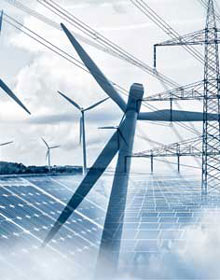
As South Africa braces for a projected 40% increase in electricity prices by 2025, experts are urging citizens to consider investing in solar power. This recommendation comes amidst ongoing concerns about the reliability and affordability of the national power grid, which has been plagued by frequent load shedding and escalating costs.
The anticipated hike stems from a combination of factors, including the need to upgrade aging infrastructure, rising operational costs, and the financial strain on Eskom, the country’s primary electricity supplier. With these increases on the horizon, the move towards renewable energy sources, particularly solar power, is not only environmentally responsible but also economically prudent.
One of the most compelling reasons for South Africans to switch to solar power now is the financial benefit. Investing in solar panels and associated technology can significantly reduce, if not eliminate, monthly electricity bills. Given the impending 40% hike, the return on investment (ROI) for solar installations will be more attractive than ever.
Considering the upcoming price surge, households and businesses that switch to solar power could save thousands of Rands annually. Moreover, there are various financing options and government incentives available to help mitigate the upfront costs of solar installations. These include tax rebates, grants, and favorable loan terms, making solar energy more accessible to a broader population.

For many South Africans, the frequent and unpredictable load shedding has been a constant source of frustration and disruption. Solar power offers a reliable alternative, providing energy independence and stability. By generating their own electricity, households and businesses can ensure a consistent power supply, even during grid outages.
“Solar energy systems, especially when paired with battery storage, can provide a continuous power supply regardless of the grid’s status,” explains Samantha Jacobs, a solar energy specialist. “This is particularly advantageous for businesses that cannot afford downtime, such as those in the hospitality, healthcare, and IT sectors.”
Beyond the economic and practical advantages, solar power is a cleaner, more sustainable energy source. South Africa, with its abundant sunlight, is ideally suited for solar energy production. By reducing reliance on fossil fuels, solar power can help decrease greenhouse gas emissions and combat climate change.
“Investing in solar energy is not just an economic decision, but an environmental one,” notes Dr. Lindiwe Nkosi, an environmental scientist. “Switching to renewable energy sources like solar can significantly reduce the nation’s carbon footprint and contribute to global efforts to mitigate climate change.”
The solar industry also holds significant potential for job creation and economic growth. As the demand for solar installations rises, so too will the need for skilled labor in manufacturing, installation, and maintenance of solar equipment. This can lead to the creation of thousands of new jobs, providing a much-needed boost to the local economy.
With the impending 40% electricity price hike, the case for investing in solar power has never been stronger. The economic, environmental, and reliability benefits make it a smart choice for South Africans looking to safeguard their finances and contribute to a greener future. As the country faces ongoing energy challenges, solar power emerges as a viable and sustainable solution, offering a brighter and more reliable future for all.
South Africans are encouraged to explore their options and take advantage of the current incentives to transition to solar energy before the 2025 electricity hike takes full effect. By acting now, citizens can protect themselves from rising costs, gain energy independence, and support the nation’s move towards a more sustainable energy landscape.


Leave a Comment